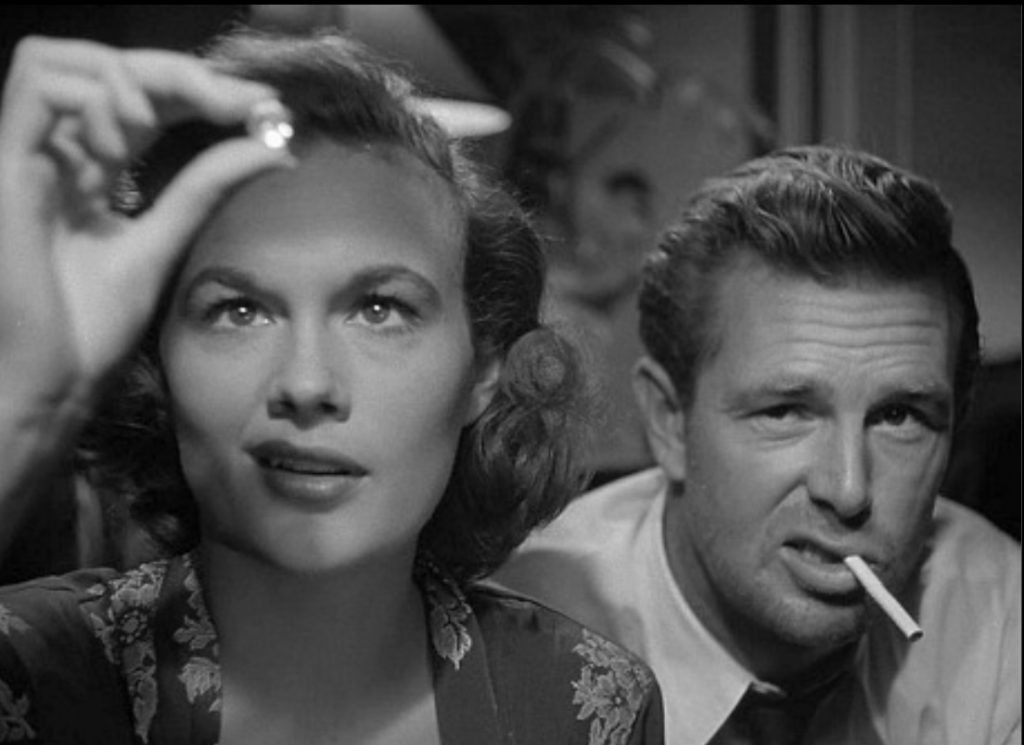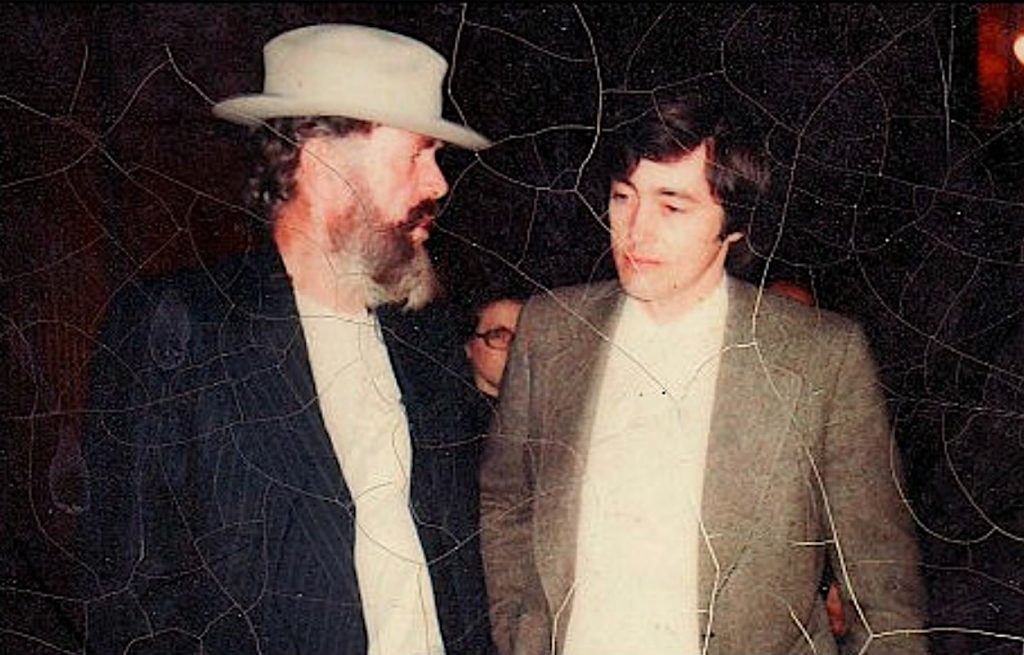I knew Sterling Hayden personally. Not well but somewhat. I ran into him here and there in the late ‘70s, interviewed him once or twice. I was a fan and a friend as far as it went. His manner was a bit odd and curious but only because there was so much going on inside. I actually loved that about him. At times peaceful and reflective, at other times anxious or even turbulent, I could always feel — sense — where Sterling was at. He was like a surly uncle with a kind heart and a beautiful half-smile that he only revealed in rare moments.
I watched him act in two locations during filming of Frank Pierson’s “King of the Gypsies” in ‘77. He was happiest as a roamer, a wanderer. He once lived on a river barge in Paris — a life for me if I could’ve managed it! Sterling was magnificent in “The Asphalt Jungle” and “Dr. Strangelove.” and “The Long Goodbye” and Bertolucci’s “1900.”
Quote: “Fasting is the precise opposite of debauch. I’m always torn between the two. The hard thing is to hold that middle ground, hold that middle ground.”
Hayden reminded me of my big, tall, eccentric paternal grandfather, although he wasn’t that far from my father, age-wise. A nearby resident of Wilton, CT. He used to take long morning walks. He was a great writerly fellow, like a character out of Melville. A writer, a dreamer, the soul of a poet, Wonderful Zeus-like gray beard, walking stick, Irish tweed cap. Deep purring voice, and occasionally a bellower when irate. Enjoyed an occasional hash pipe. Loved his Johnnie Walker Red.


Hayden was one of the most spiritual actors I’d ever had the pleasure to know or speak with.
There are the rote facts of life, the plain material truth of things, and then there are the currents within. The singing angels, the demons, the fireflies, the banshees, the echoes, the dreams…the vague sense of a continuing infinite scheme and how we fit into that. Every last one of us can define our lives as a constant mixing of these two aspects, but the charm and final value of a person, for me, is about how much he/she seems to be cognizant of and dealing with the interior world, and how much he/she comments and refers to those currents and laughs about them, and basically lives on the flow of that realm.
Some go there more frequently or deeply than others, and some are just matter-of-fact types who let their spiritual side leak out in small little droplets from time to time.
Sterling Hayden, by my sights, was almost entirely about those currents. He never just said, “I’d like a little sugar in my coffee” and let it go at that. Well, he would…but if you asked him to expand upon that notion he would just take off and you’d just sit back and marvel. Hayden knew various coffees and coffee growers and had walked through coffee plantations in the Caribbean at dawn and he knew all about how sugar was refined and would speak metaphorically about the sweetness of sugar being the enticement but coffee being the reality of it all, the bean from the earth, the bean that needed to turn brown and then be ground down and prepared just so, and then he’d be off on some tangent that took the coffee-vs.-sugar metaphor and ran with it, or took it and jumped off a cliff as it were.
Hayden was a fascinating, hungry and obviously vulnerable man, Proud but insecure and ridden with guilt about naming names in the ’50s, jolly or surly depending on the time of day, very singular, a great contentious bear of a man, unsettled, always the thinker, certainly a poet or a man trying all the time to be one, a man of the sea and a boy in some ways. He and Patti Smith would have gotten along famously. He loved getting high. And (I’ve already said this) he loved his Johnnie Walker Red.
We were once speaking about his role as the farmer in Bernardo Bertolucci‘s 1900 and he started to talk about his final line in the film, which he wrote, but I said it before he did — “I’ve always loved the wind”. Sterling loved that. He chuckled and patted my knee and said “God love ya.”









